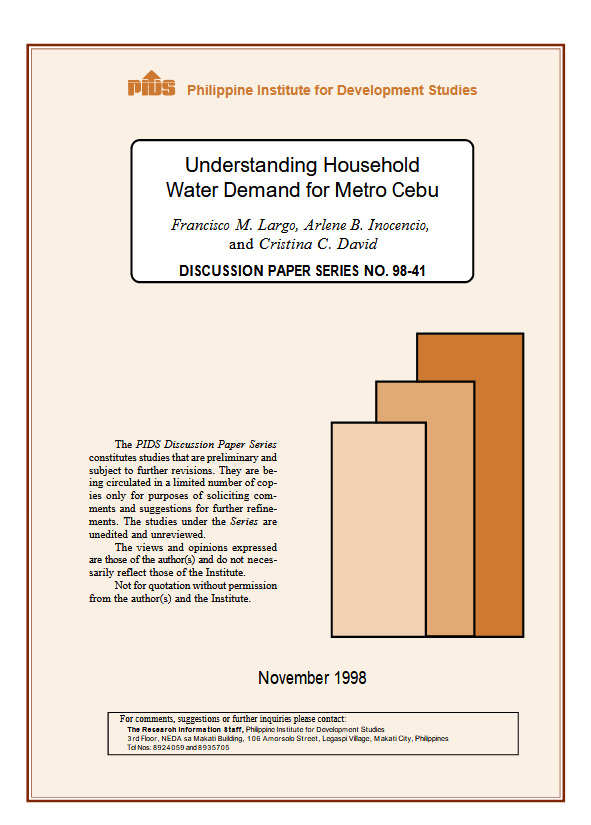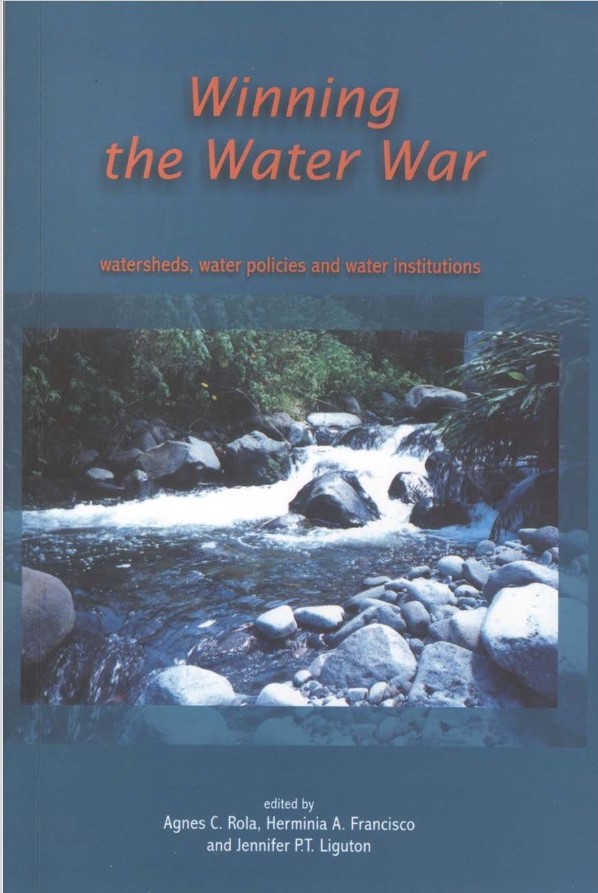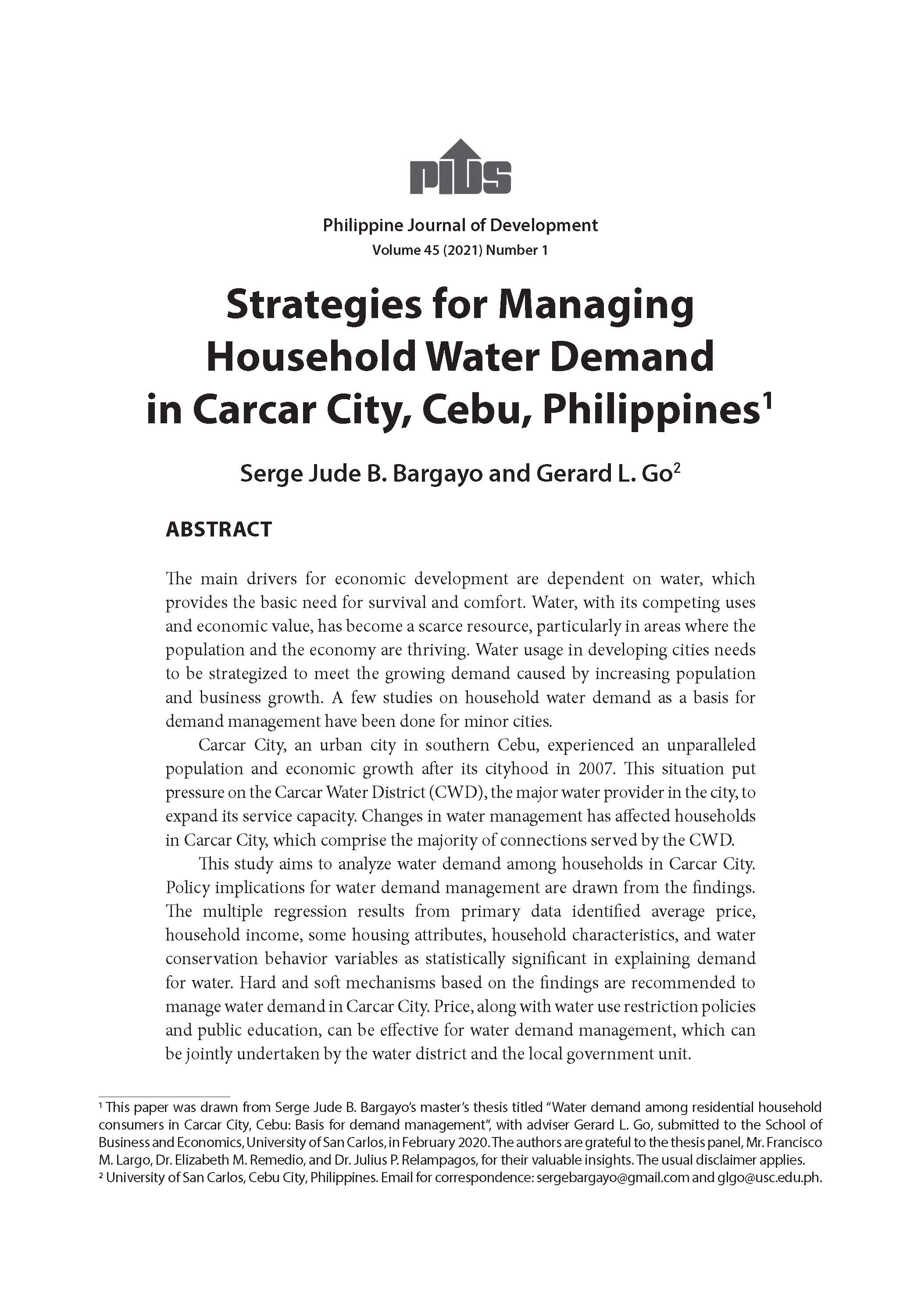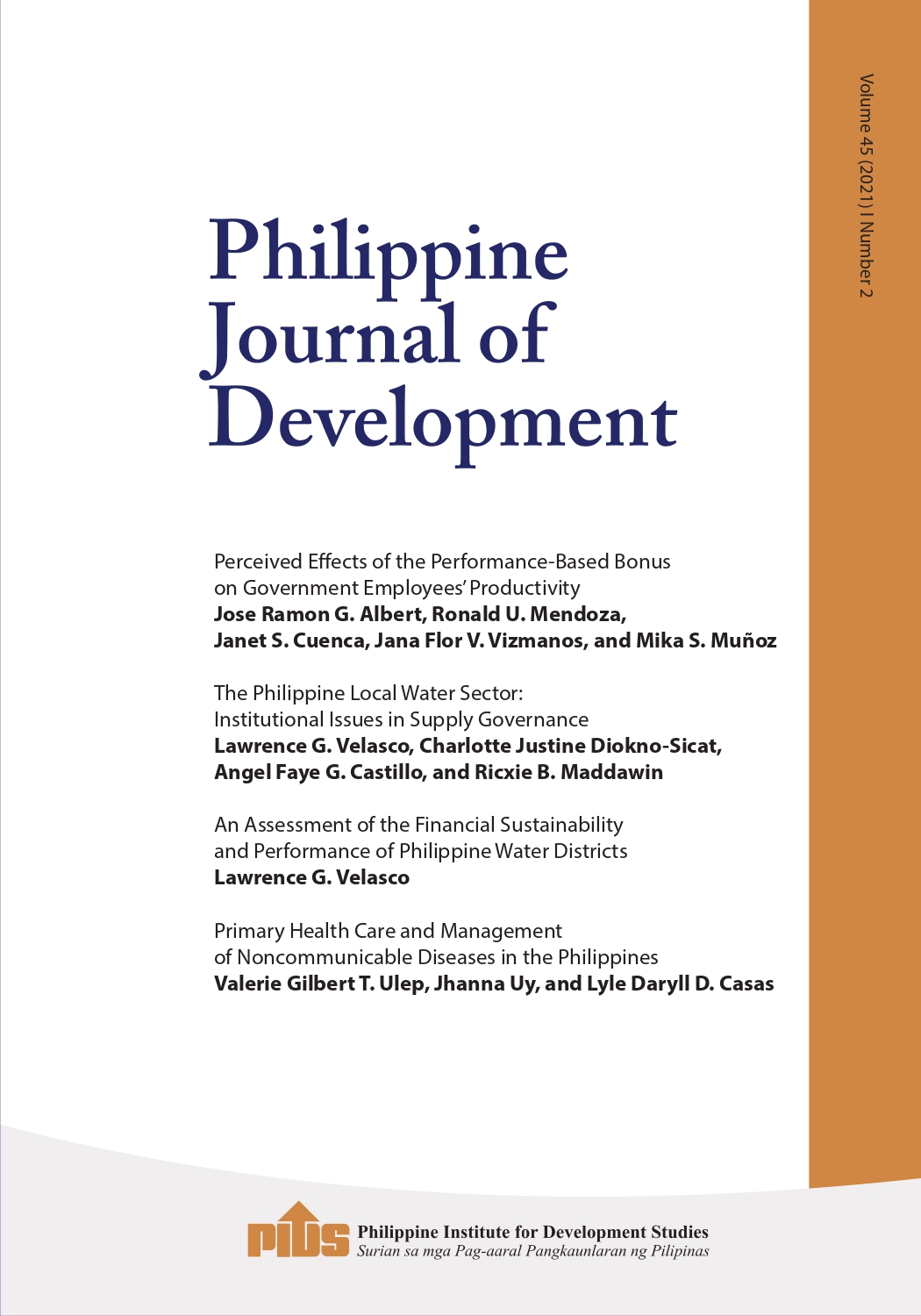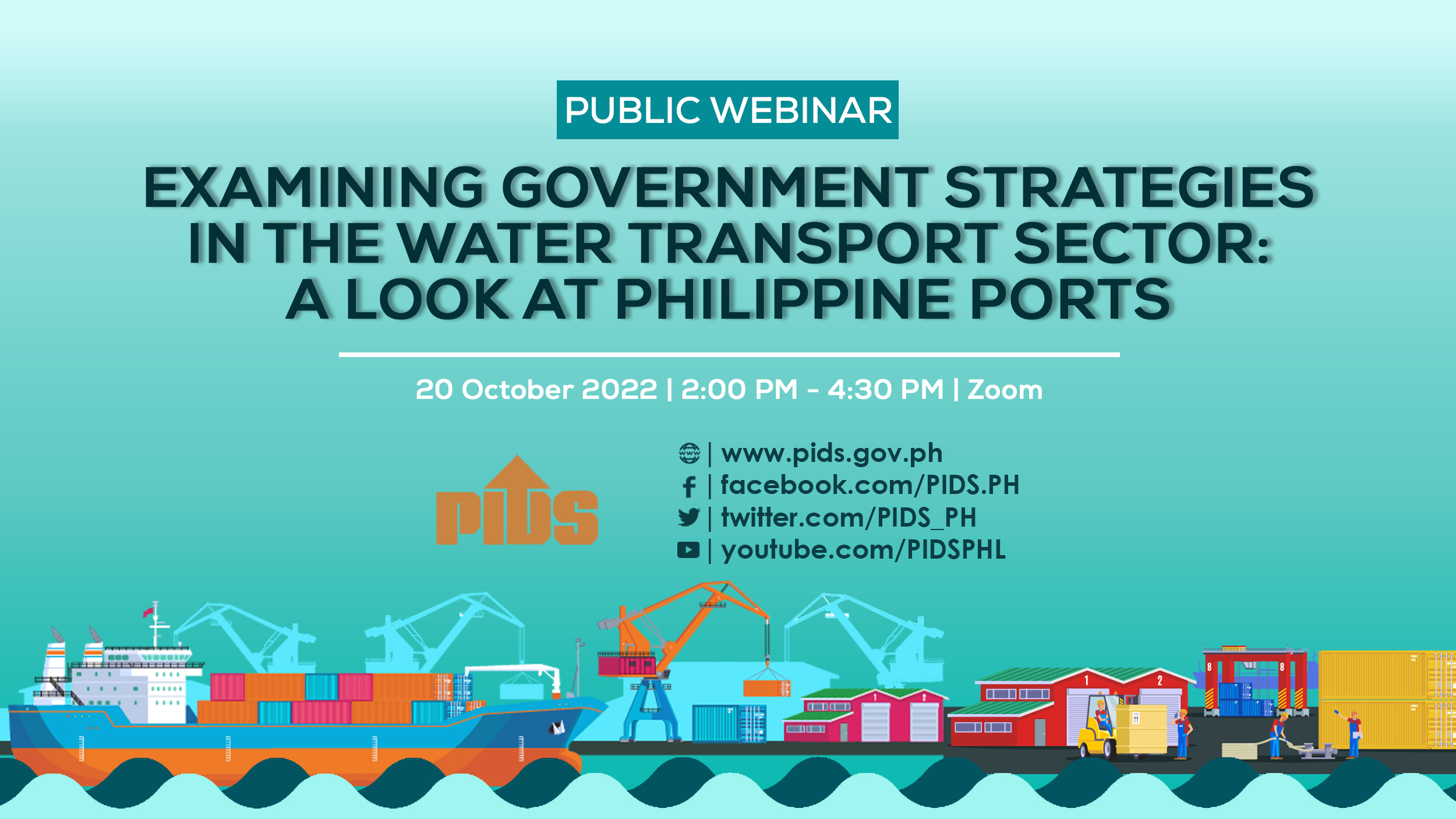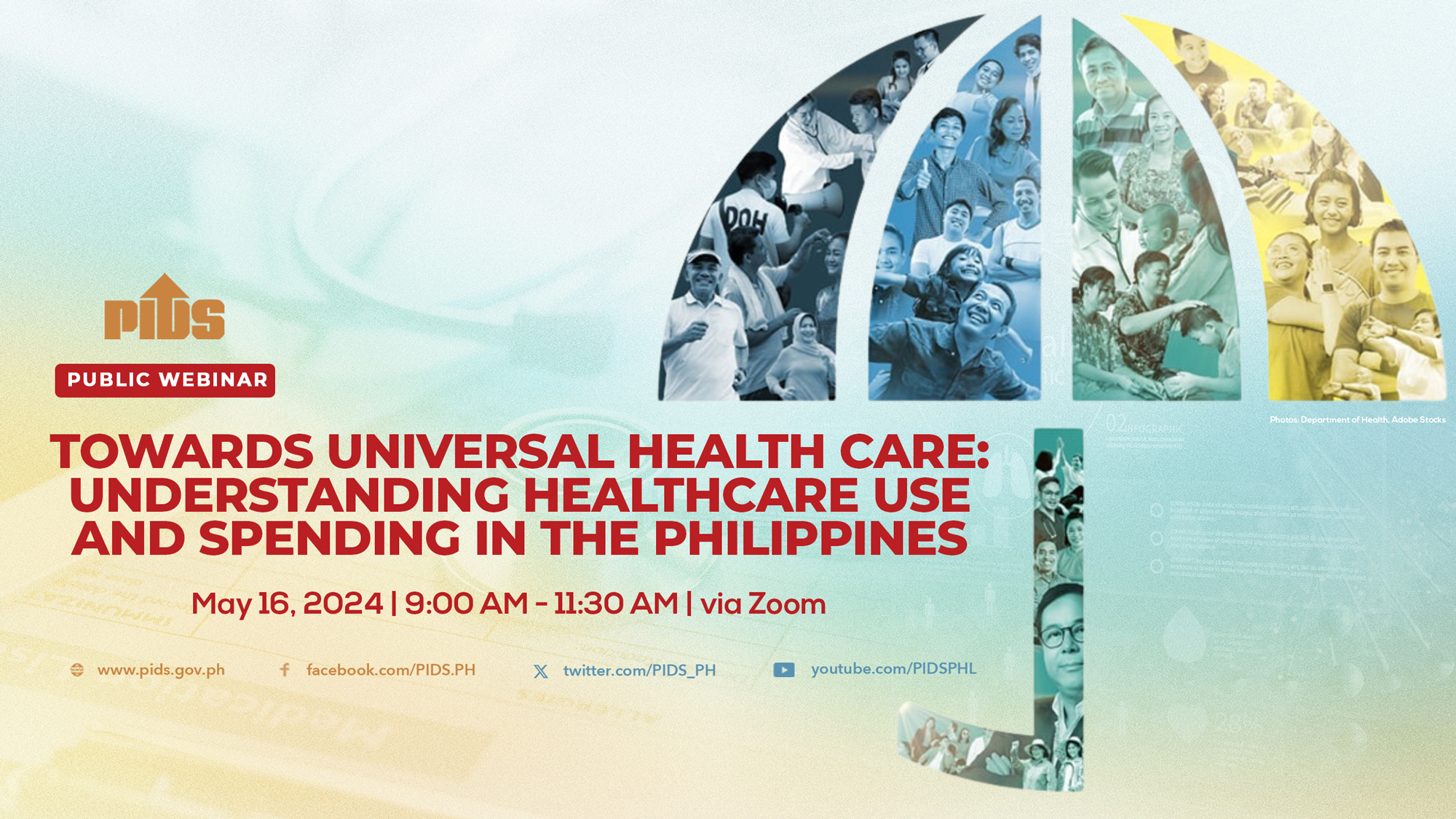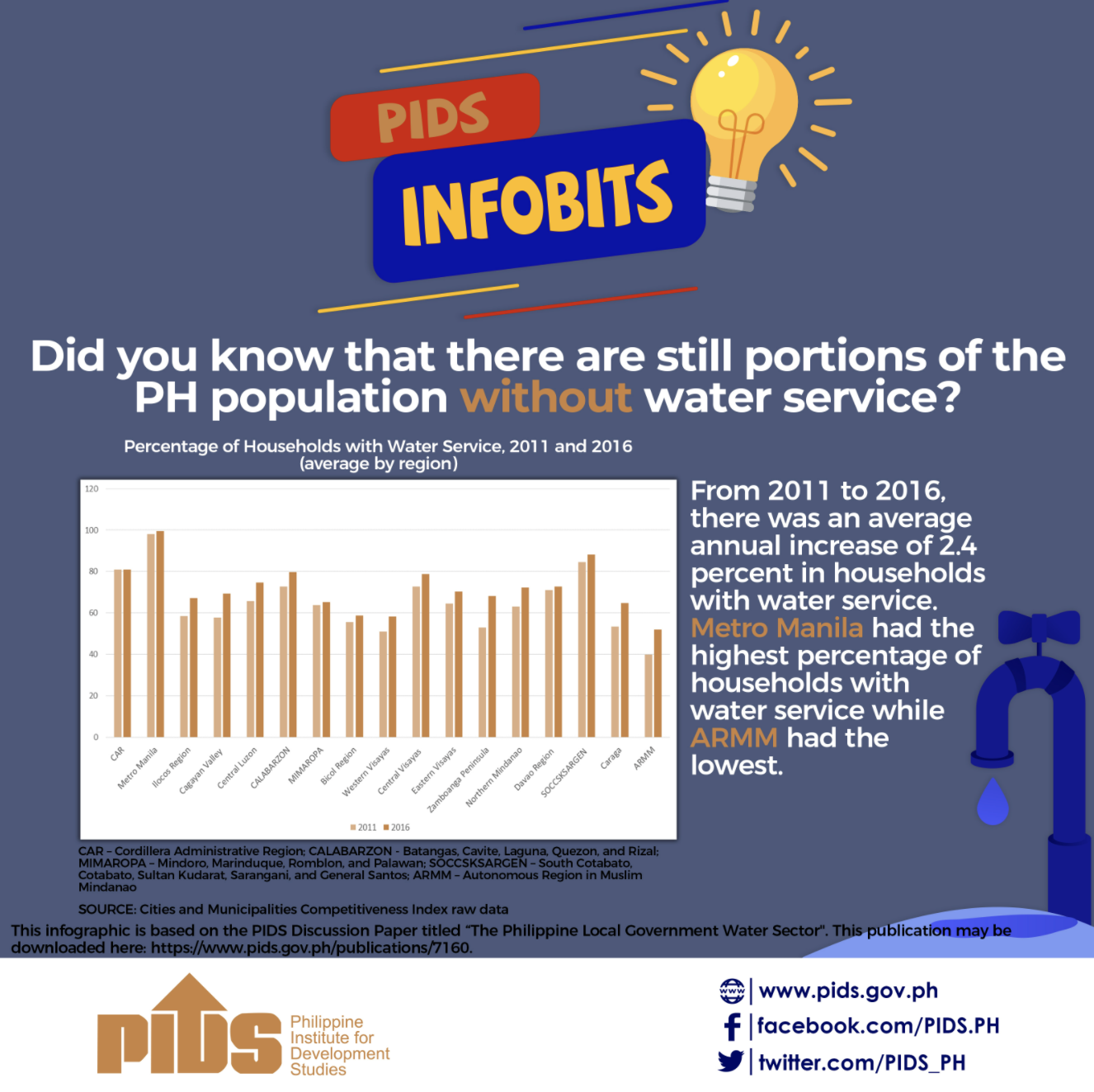Due to the rapid population growth in cities and the rising cost of developing new sources of water supply, Metro Cebu has experienced an increasing demand and supply gap. This has been exacerbated by the current drought and the pollution on bodies of water surrounding the city. Efficient water utilization entails the adoption of an optimal pricing framework to mitigate the externalities imposed by production and consumption of water. This study examines the nature and determinants of water demand in the Metro Cebu households. Estimates show that optimal pricing strategy can be an effective means of addressing the scarcity of freshwater supply. The relatively high water prices reflect the cost of distribution and monopoly profits, both of which can be reduced through expanding and making accessible the central distribution system.
Citations
This publication has been cited 5 times
- Israel, Danilo C. 2013. An assessment of the local service delivery of potable water in Dumaguete City and selected areas of Agusan del Sur Province. Philippine Journal of Development PJD 2009, XXXVI, no. 2. Philippine Institute for Development Studies.
- Israel, Danilo C.. 2009. Local service delivery of potable water in the Philippines: National review and case analysis. Discussion Papers DP 2009-38. Philippine Institute for Development Studies.
- Kia, Amir. 2002. Interest free and interest-bearing money demand: Policy invariance and stability. Working Papers 0214. Economic Research Forum.
- Monteiro, Henrique. 2010. Residential water demand in Portugal: Checking for efficiency-based justifications for increasing block tariffs. Working Papers Series 1 ercwp0110. ISCTE-IUL, Business Research Unit (BRU-IUL).
- World Bank. 2006. Republic of Colombia. World Bank Publications - Reports 33924. The World Bank Group.

